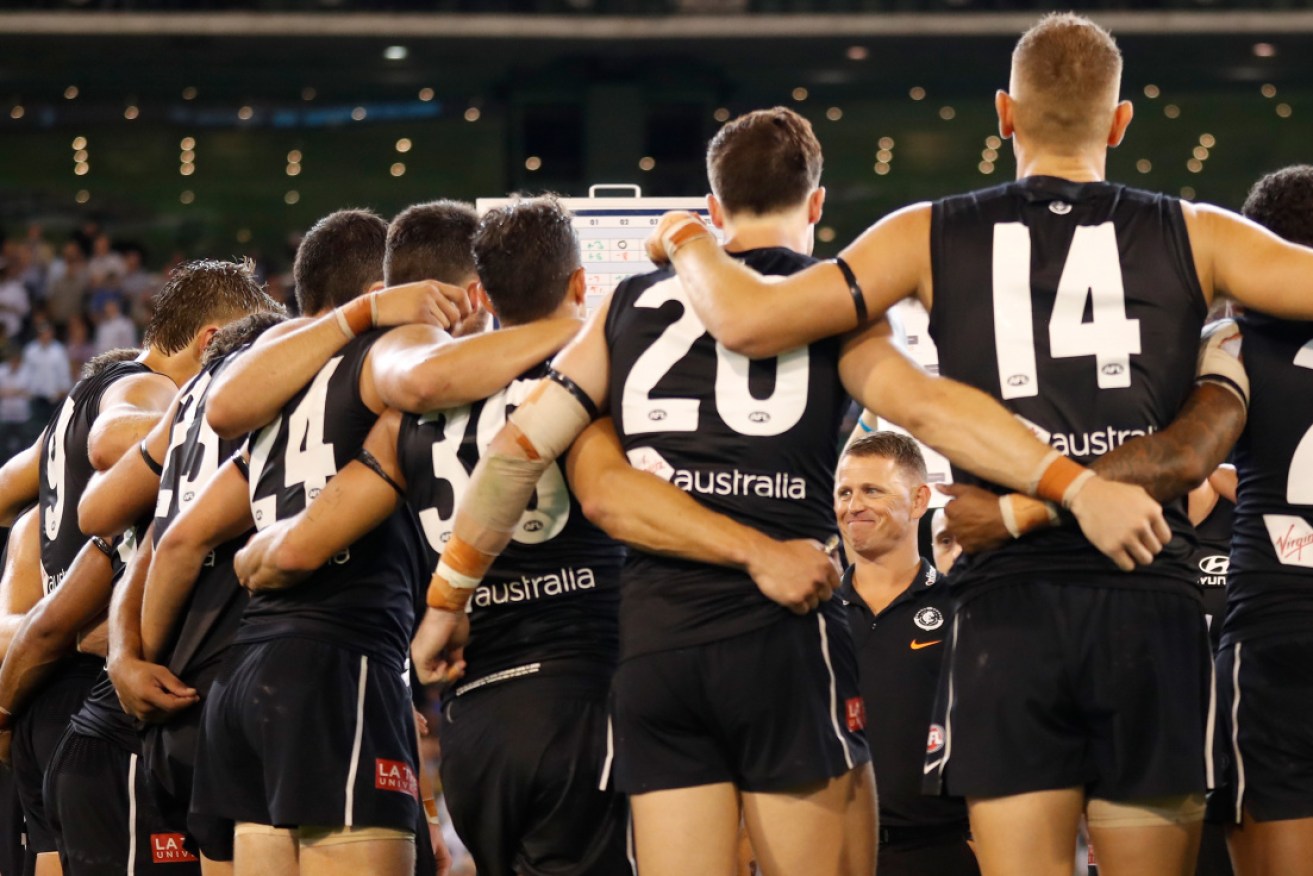Why AFL clubs with a ‘teacher’ coach have a lot to learn


Carlton coach Brendon Bolton 'teaching his charges before the Richmond opener last Thursday night. Photo: Getty
When Brendon Bolton was appointed Carlton’s senior coach at the end of 2015 it was supposed to herald in a new era of of ‘teacher’ coaches.
Here we are four years later and we are none the wiser as to whether this model produces results or simply makes for a happy team.
The performance of Carlton, St Kilda and, to a lesser extent, Brisbane and Gold Coast this year should finally definitively answer the question.
Bolton’s appointment at Carlton was unusual, not simply because he had never played the game at the highest level, but because of his seven-year stint as a PE teacher in his home state of Tasmania.

Bolton, who was chosen for his development skills, watches training. Photo: Getty
Personally, I have serious doubts over the rise of the teacher coach.
Quite simply if a head coach is doing all the teaching, then who is doing what a head coach should be doing?
Namely leading and developing the club’s football and coaching strategy, designing a winning game plan, managing relationships across a diverse range of stakeholders, instilling a professional culture of discipline and success, promoting the club and its brand as well as managing the often-delicate relationship between football department, board and executive.
These are the key roles of the head coach, and the teaching should be left to the myriad staff that are employed to do just that.

St Kilda coach Alan Richardson talks tactics on Sunday. Photo: Getty
According to the then head of football at Carlton, Andrew McKay, it was the skills learned during this period that elevated Bolton above the others considered for the position.
“His ability to teach and develop players made him stand out from the other candidates’, McKay said.
A quick glance at Carlton’s staff list shows there are coaches responsible for the midfield, defence and forwards; as well as dedicated development coaches for each of these areas.
There is a stoppage coach, ruck coach, goal-kicking coach, elite performance coach, a player development manager, Indigenous player co-ordinator, leadership coach, numerous strength and conditioning coaches, dieticians, sports science manager as well as a high-performance manager.
Teaching the players is what these people are actually employed to do.
Ross Lyon once said “Let the cobblers cobble?” In other words let the staff in the best position to teach, actually do that.
The main man can then focus his attention on leading the big unwieldy, temperamental, high-profile behemoth that is an AFL club.
When I was growing up Carlton always had an aura of arrogance and superiority. Most of it was built on outstanding performance and winning flags. Carlton today has none of this and it begs the question of what comes first, a winning attitude or the actual winning?

Winning focus: Patrick Cripps and his team need to do more than improve. Photo: Getty
I firmly believe that once you get the mind in the right space, the actions will follow. Carlton’s mindset is instead focused on improvement, rather than winning.
After the Round 1 loss against Richmond, Bolton said: “It’s about growing and learning about each other”.
Worryingly he went on to say: “I’m falling in love with our players. I know that sounds mushy, I know it’s not a word we use a lot, but they’re really tight and the same age”.
It appears that losses are tolerated as long as Jacob Weitering, Zac Fisher, Charlie Curnow and now Sam Walsh show signs of progression.
What about Matthew Kreuzer, Kade Simpson, Dale Thomas and Marc Murphy? How long are they supposed to wait for others to learn how to play?
Having a leader drive this great club so that its mindset returns to the halcyon days of arrogance and superiority would, in my opinion, speed up the learning.
Fortunately, we have something called a win-loss ratio that will tell us whether it is more important to have a teacher or a leader at the top of the tree.
Another season of just two wins will make it obvious.
Nathan Burke is a former St Kilda captain who played 323 AFL games for the Saints, winning three Trevor Barker Awards as best-and-fairest player.








